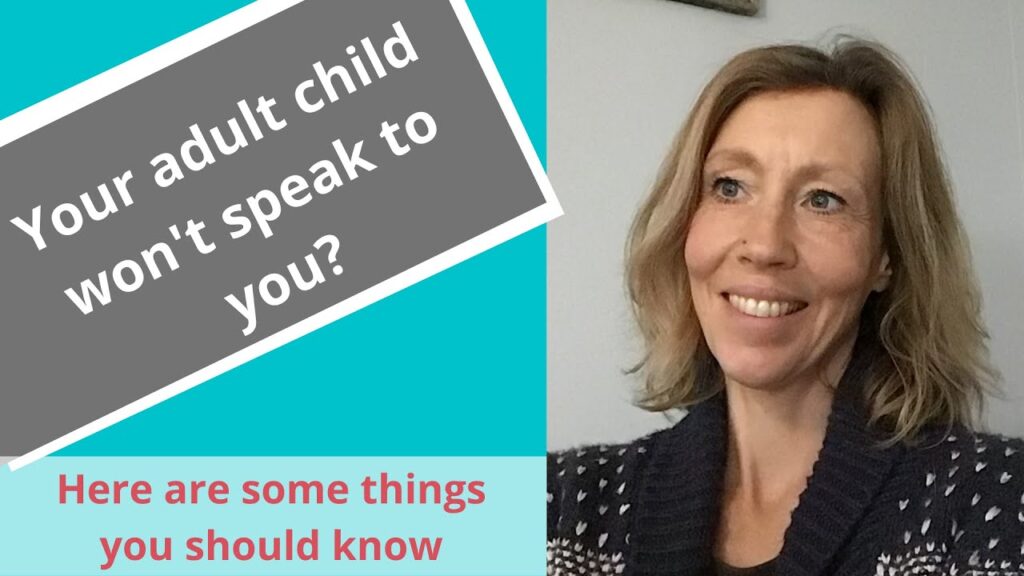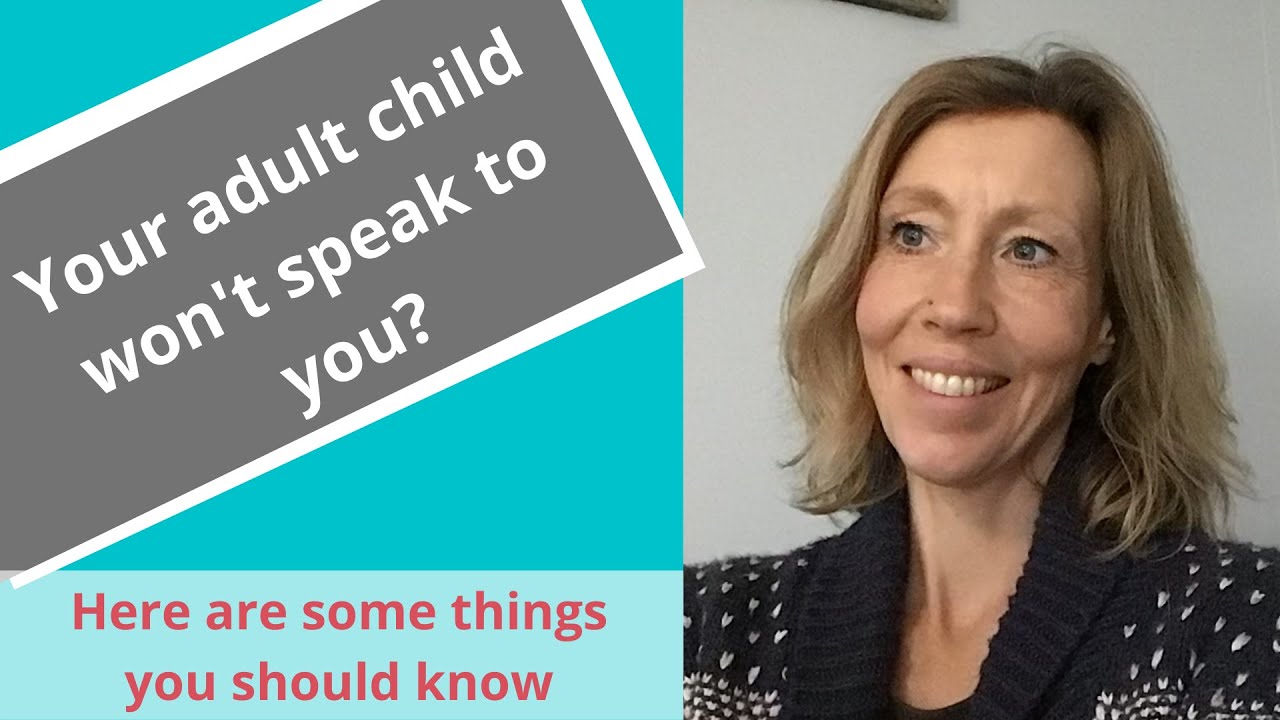
My Adult Son Won’t Talk to Me: Understanding the Silence and Finding a Path to Reconciliation
The silence is deafening. The once-frequent phone calls have stopped. Family gatherings feel strained, or worse, your adult son is absent altogether. The painful reality is this: my adult son won’t talk to me. This situation, while incredibly common, can leave parents feeling lost, confused, and heartbroken. Understanding the reasons behind the silence and developing strategies to bridge the gap is crucial for rebuilding a healthy relationship.
Why is My Adult Son Not Talking to Me?
There’s rarely a single, simple answer to why an adult son stops communicating with his parents. Several factors can contribute to this breakdown in communication. It’s important to approach the situation with empathy and a willingness to understand his perspective.
Unresolved Conflicts from the Past
Old wounds can fester and resurface, especially as children transition into adulthood. Perhaps there were disagreements during his teenage years that were never truly resolved. Maybe he feels that past injustices haven’t been acknowledged. These unresolved conflicts can create a barrier to open communication. Consider if there are any specific incidents that might be contributing to why my adult son won’t talk to me.
Feeling Judged or Controlled
Adult children often crave independence and autonomy. If they feel that their parents are constantly judging their life choices, offering unsolicited advice, or attempting to control their decisions, they may withdraw to establish boundaries. No one wants to feel like they are constantly being scrutinized, especially by their parents. He might feel you are not respecting his adult life and boundaries. This can lead to a situation where my adult son won’t talk to me.
Different Values or Lifestyle Choices
As children grow and develop their own identities, they may adopt values or lifestyle choices that differ from their parents. This can lead to friction and conflict, particularly if parents are critical or dismissive of their son’s choices. For example, differing political views, career paths, or relationship choices can cause a rift. It’s crucial to respect his autonomy even if you don’t agree with his decisions. The feeling of disapproval might be why my adult son won’t talk to me.
Dealing with Personal Struggles
Sometimes, a son’s silence has nothing to do with his parents directly. He may be struggling with personal issues such as mental health challenges, relationship problems, financial difficulties, or career setbacks. He might feel overwhelmed and unable to cope, leading him to withdraw from everyone, including his parents. In such cases, it’s important to be supportive and understanding without being intrusive. Remember, my adult son won’t talk to me may simply mean he’s struggling internally.
Feeling Misunderstood or Not Heard
A common complaint from adult children is that they don’t feel truly heard or understood by their parents. They may feel that their opinions are dismissed, their feelings are invalidated, or that their parents aren’t truly listening to their perspective. Active listening and genuine empathy are essential for building a strong and trusting relationship. If he feels unheard, it’s understandable why my adult son won’t talk to me.
Influence of Others
Sometimes, the influence of a partner, friends, or other family members can contribute to a son’s estrangement from his parents. A partner might be critical of the parents, or friends might encourage him to distance himself from his family. While you can’t control external influences, it’s important to be aware of the possibility and to focus on strengthening your own relationship with your son. The negative influence from others could be why my adult son won’t talk to me.
What Can I Do When My Adult Son Won’t Talk to Me?
Rebuilding a broken relationship takes time, patience, and a willingness to change. Here are some steps you can take to address the situation when my adult son won’t talk to me:
Self-Reflection and Taking Responsibility
Before reaching out to your son, take some time to reflect on your own behavior and identify any patterns that might have contributed to the breakdown in communication. Ask yourself if you have been judgmental, controlling, or dismissive of his feelings. Be honest with yourself and take responsibility for your part in the problem. Acknowledging your mistakes can go a long way in opening the door for reconciliation. It’s essential to understand why my adult son won’t talk to me from his perspective.
Reach Out with Empathy and Understanding
When you do reach out to your son, do so with empathy and understanding. Avoid accusatory language or blaming him for the situation. Instead, express your concern for his well-being and your desire to reconnect. Let him know that you are open to listening to his perspective and understanding his feelings. A simple message like, “I’ve noticed we haven’t been connecting lately, and I miss you. I’m here to listen if you’re willing to talk,” can be a good starting point. Showing you care is crucial when my adult son won’t talk to me.
Respect His Boundaries and Space
It’s important to respect your son’s boundaries and space, even if it’s difficult. Don’t bombard him with calls or messages, and don’t try to force him to talk if he’s not ready. Give him the time and space he needs to process his feelings and decide if and when he wants to reconnect. Pushing too hard can backfire and further damage the relationship. Respecting his space is important when my adult son won’t talk to me.
Active Listening and Validation
When your son does decide to talk, practice active listening. Pay attention to what he’s saying, both verbally and nonverbally. Ask clarifying questions to ensure you understand his perspective. Validate his feelings, even if you don’t agree with them. Let him know that you hear him and that you understand how he feels. Active listening can help rebuild trust and create a safe space for open communication. Showing him you hear him can help with the situation where my adult son won’t talk to me.
Seek Professional Help
If you’re struggling to communicate effectively with your son, consider seeking professional help. A therapist or counselor can provide guidance and support to both of you, helping you to navigate difficult conversations and develop healthier communication patterns. Family therapy can be particularly helpful in addressing underlying issues and rebuilding strained relationships. Seeking help is a sign of strength when my adult son won’t talk to me.
Focus on Building a New Relationship
It’s important to recognize that your relationship with your adult son will likely be different than it was when he was a child. Focus on building a new relationship based on mutual respect, understanding, and acceptance. Let go of expectations and be open to accepting him for who he is now. Celebrate his successes and support him through his challenges. Building a new relationship is key when my adult son won’t talk to me.
Forgiveness and Letting Go
Forgiveness is essential for healing and moving forward. Forgive your son for any perceived wrongs, and forgive yourself for any mistakes you may have made. Holding onto resentment and anger will only perpetuate the cycle of conflict. Letting go of the past can free you both to build a healthier and more fulfilling relationship. Forgiveness is important when my adult son won’t talk to me.
Patience and Persistence
Rebuilding a broken relationship takes time and effort. Don’t get discouraged if progress is slow or if there are setbacks along the way. Be patient, persistent, and committed to the process. Remember that even small steps forward can make a big difference in the long run. Patience is a virtue when my adult son won’t talk to me.
When to Accept the Distance
While reconciliation is often the goal, there are situations where accepting the distance may be the healthiest option. If your son is consistently abusive, manipulative, or unwilling to take responsibility for his actions, it may be necessary to protect yourself and prioritize your own well-being. Setting boundaries and limiting contact can be a difficult but necessary step in these circumstances. It’s important to remember that you deserve to be treated with respect and dignity, and you have the right to protect yourself from harm. Sometimes, acceptance is the only option when my adult son won’t talk to me.
The Importance of Self-Care
Dealing with a strained relationship with your adult son can be emotionally draining. It’s essential to prioritize self-care during this challenging time. Make sure you’re getting enough sleep, eating healthy, exercising regularly, and engaging in activities that bring you joy. Seek support from friends, family, or a therapist. Remember that you can’t pour from an empty cup. Taking care of yourself will help you to cope with the situation and maintain your own well-being. Self-care is crucial when my adult son won’t talk to me.
In conclusion, when my adult son won’t talk to me, understanding the potential underlying reasons, taking responsibility for your own actions, and approaching the situation with empathy and a willingness to change are crucial steps towards reconciliation. While the path may be challenging, the potential rewards of rebuilding a healthy and meaningful relationship are well worth the effort. [See also: How to Reconnect with Estranged Family] [See also: Understanding Adult Child Estrangement]

